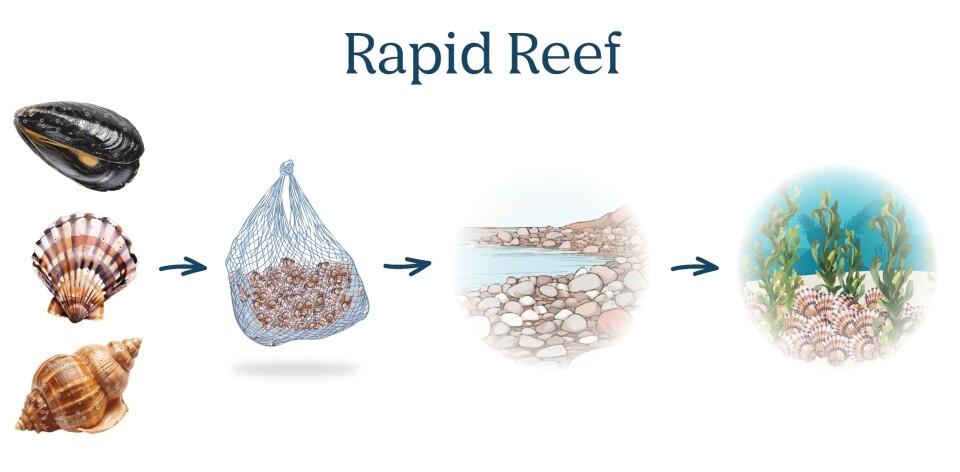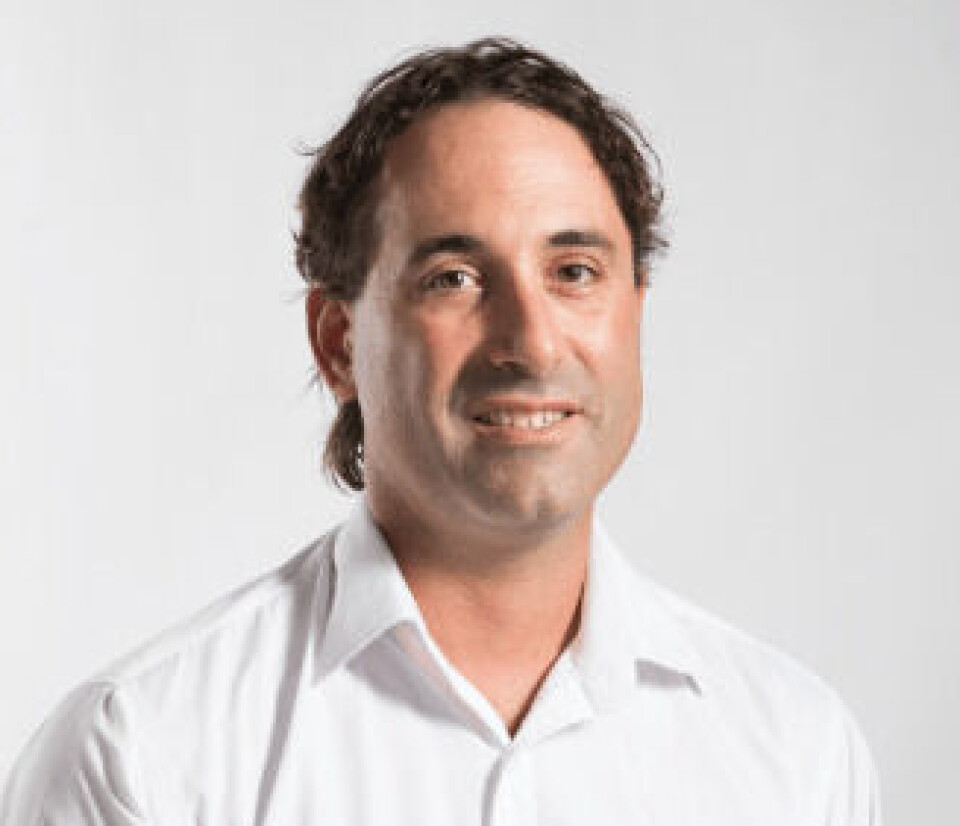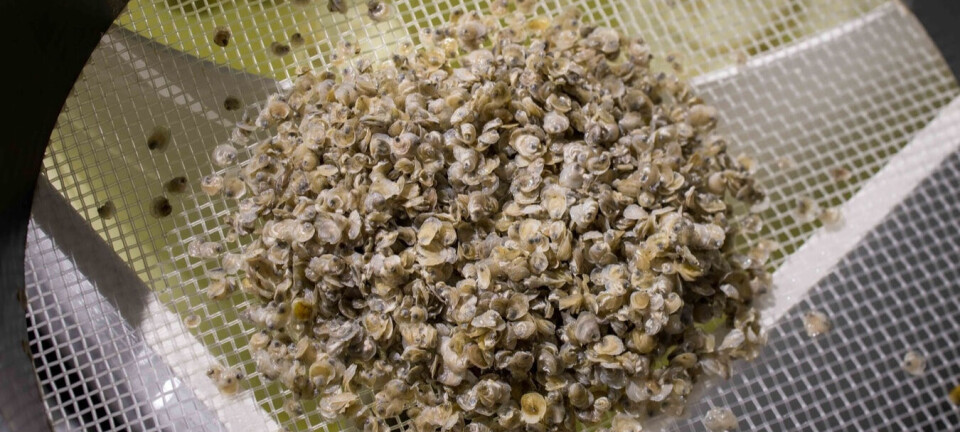
Oysters made easy: restoration company launches reef in a bag
The Oyster Restoration Company, based at Loch Ewe, northwest Scotland, has launched Rapid Reef, an innovative product designed to accelerate and simplify oyster reef restoration. It said Rapid Reef delivers a much-needed, accessible solution for restoring vital ecosystems.
Made using recycled shells as a substrate for native oyster spat, Rapid Reef is said to provide a robust and sustainable foundation for creating living oyster reefs. Each Rapid Reef bag contains approximately 15,000 oysters, covering at least 5m² of seabed, fostering improved biodiversity and supporting marine ecosystem recovery.
The company said the product’s modular and adaptable design makes it suitable for deployment in diverse marine environments at any scale, and can be adapted to use with alternate substrates if required.

We’ve created a tool that empowers communities and professionals alike to revive oyster reefs
Dr Nik Sachlikidis
Dr Nik Sachlikidis, chief executive of The Oyster Restoration Company, said: “Rapid Reef represents a step forward in restoring marine biodiversity. By embedding native oyster spat on to a sustainable substrate, we’ve created a tool that empowers communities and professionals alike to revive oyster reefs and transform ecosystems. Our mission is to enable the rapid recovery of marine habitats, building biodiversity and resilience in the face of environmental challenges.”
Deployment-ready
Traditional oyster restoration projects can be highly complex and labour-intensive. Rapid Reef eliminates these barriers by arriving deployment-ready, requiring no additional preparation. The Oyster Restoration Company’s biosecure, disease-free hatchery populates the recycled shells substrate with native oyster spat, packaging them to ensure high survival rates and ease of handling.
Chief commercial officer Owain Wynn-Jones said: “We understand the urgency of restoring marine habitats, and Rapid Reef is our response to that need. By using recycled shells, we’re not only accelerating restoration but also embracing the principles of the circular economy - giving discarded materials destined for landfill a vital role in regenerating marine ecosystems. With Rapid Reef, teams can focus on making a difference in the water, while we handle the complexities of preparation.”
The Oyster Restoration Company said Rapid Reef is a transformative step forward in its mission to restore native oyster populations and revitalise marine ecosystems globally. It said that by offering scalable, ready-to-deploy solutions, the company empowers communities and organisations to take meaningful action in advancing ecosystem rejuvenation.

























































